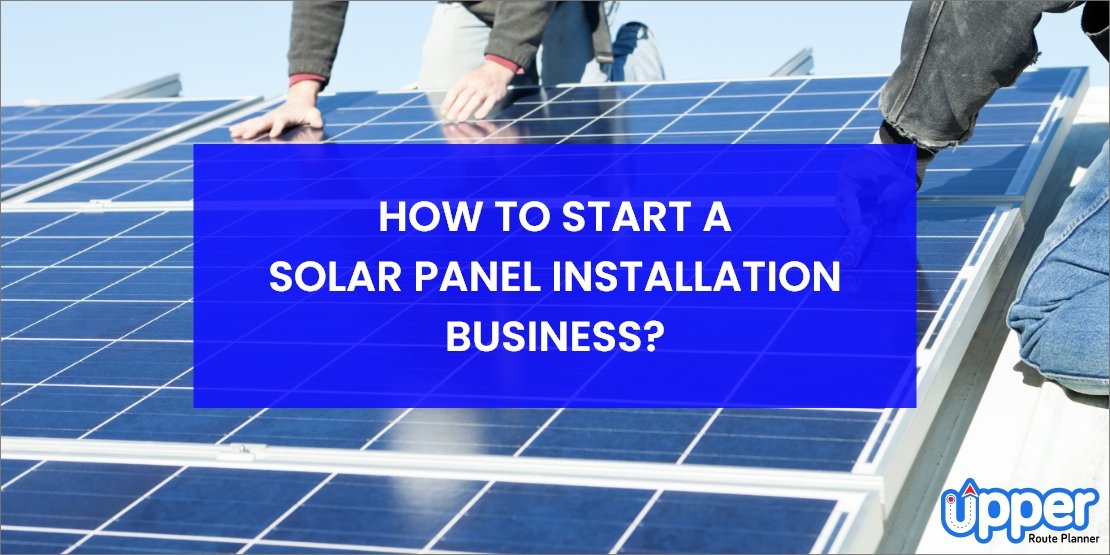
Starting a Solar Installation Business: What You Need to Know
With the growing demand for renewable energy, starting a solar installation business is a smart and timely move. Governments worldwide are offering incentives, businesses are becoming more eco-conscious, and homeowners are looking for ways to reduce electricity bills. The solar industry is booming—and there’s plenty of opportunity for new entrepreneurs.
But before you dive in, it’s important to understand what it takes to launch a successful solar installation business. From licensing and certifications to marketing strategies and equipment sourcing, this guide will walk you through everything you need to know to get started in the solar installation business.
Why Choose the Solar Industry?
The global transition to clean energy is accelerating. Here are a few reasons why entering the solar industry is a strong business opportunity:
- High Demand: More homeowners and companies are installing solar systems than ever before.
- Government Incentives: Tax credits and rebates make solar installations attractive.
- Profitability: With the right setup, the profit margins can be high.
- Sustainability: It’s an environmentally conscious business with long-term relevance.
According to the International Energy Agency (IEA), solar PV is set to account for over 60% of global renewable energy capacity by 2030. Click here for our montering af solceller guide
Step 1: Understand the Solar Installation Business Model
Before starting your business, it’s crucial to know what types of services you want to offer. The solar business has several branches:
- Residential Solar Installations
- Commercial Solar Projects
- Solar Panel Maintenance & Repairs
- Battery Storage Installation
- Consulting & Energy Audits
Each has different requirements, target markets, and levels of complexity. Residential installations may have faster turnaround times, while commercial projects offer bigger contracts.
Read Also: The Future of Metal Roofs: Smart Roofing Technology and Sensor Integration
Step 2: Develop a Solar Business Plan
A well-structured business plan is key to success. It will help you define your goals, identify your market, and forecast your expenses.
Your business plan should include:
- Executive Summary
- Market Analysis
- Target Audience
- Services Offered
- SWOT Analysis
- Marketing Strategy
- Financial Plan
- Operational Plan
This document will also help you attract investors, apply for loans, and keep your operations on track.
In some countries, solar installers must be certified electricians or work under one. Before starting, it’s important to research your local electricians license requirements to ensure compliance with legal standards
Step 3: Get Proper Training and Certifications
To become a professional solar installer, you or your team will need certifications. These increase your credibility and ensure you comply with safety standards.
Key Certifications:
- NABCEP Certification (North America)
- Electrical Contractor License
- OSHA Safety Training
- Local Solar Installer Licenses
In some countries, solar installers must be certified electricians or work under one. Research your local legal requirements before you begin.
Step 4: Register Your Business
Register your business as a legal entity, such as an LLC or sole proprietorship. Choose a name that reflects your brand and solar expertise.
Steps to register:
- Choose a business name.
- Register with your local government.
- Get a tax ID or business number.
- Open a business bank account.
- Apply for required permits and licenses.
Step 5: Secure Insurance and Legal Compliance
Solar installation involves working with electrical systems and rooftops—there are risks involved.
Essential insurance types:
- General Liability Insurance
- Workers’ Compensation Insurance
- Professional Liability Insurance
- Commercial Auto Insurance (for transport)
Also, ensure your business complies with building codes, zoning laws, and electrical regulations.
Step 6: Source Equipment and Build Supplier Relationships
You’ll need high-quality solar panels, inverters, batteries, and mounting hardware. Build relationships with reliable manufacturers and distributors.
When sourcing equipment, focus on:
- Warranty terms
- Brand reputation
- Delivery times
- Technical support
Some trusted solar brands include Solee, SunPower, Canadian Solar, Q CELLS, and Tesla Energy.
Consider starting with small inventory and using just-in-time (JIT) supply methods to reduce upfront costs.
Step 7: Build a Skilled Team
Your team will be the backbone of your business. Depending on your scale, you may need:
- Licensed electricians
- Roofers
- Solar panel installers
- Project managers
- Sales and marketing professionals
- Customer service staff
Provide ongoing training and encourage certifications to ensure quality service and workplace safety.
Step 8: Set Pricing and Service Packages
Pricing depends on several factors:
- Equipment costs
- Labor and overhead
- Market demand
- Government rebates
Offer clear service packages for residential and commercial clients. Some businesses also offer solar leasing or power purchase agreements (PPAs) as alternative financing models.
Consider offering:
- Free consultations
- Custom installation packages
- Maintenance plans
Transparency in pricing builds trust and boosts conversions.
Step 9: Create a Solar Business Website
A professional, SEO-optimized website will serve as your digital storefront. It should include:
- About Us
- Services Offered
- Project Gallery
- Customer Testimonials
- Request a Quote Form
- Contact Details
- Blog Section (for SEO)
Important SEO keywords to include:
- Solar panel installation near me
- Residential solar installer
- Commercial solar energy solutions
- Solar energy company [Your Location]
- Affordable solar panel installation
Regularly post blog content like “Top 5 Benefits of Solar Energy” or “How to Choose the Right Solar System” to attract organic traffic.
Step 10: Market Your Business
Marketing is crucial for building your brand and finding customers.
Online Marketing:
- Google Ads
- Facebook/Instagram Ads
- Local SEO
- Google Business Profile
- Email Marketing
Offline Marketing:
- Local newspapers
- Flyers and brochures
- Trade shows and green expos
- Referral programs
Also, partner with real estate agents, construction firms, and architects to get referrals.
Step 11: Offer Financing and Incentive Guidance
Solar systems can be expensive upfront. Offering financing options makes it easier for clients to say yes.
You can work with:
Local banks or credit unions
Green energy finance companies
Government programs offering solar loans
Also, help clients understand how to claim tax credits, net metering benefits, and feed-in tariffs to reduce their investment burden.
In regions like Texas, exploring various renewable options alongside competitive texas energy plans can help homeowners maximize long-term savings and make the transition to solar even more cost-effective.
Step 12: Deliver Excellent Customer Service
A satisfied customer is your best marketing tool. Ensure your communication is prompt, clear, and supportive throughout the sales and installation process.
Encourage online reviews on:
- Google
- Facebook
- Yelp
- Trustpilot
Positive reviews not only boost SEO but also establish your business as trustworthy.
Step 13: Stay Updated on Solar Trends
The solar industry is evolving fast with innovations like:
- Bifacial solar panels
- Solar roof tiles
- AI-powered monitoring systems
- Floating solar systems
- Integrated battery storage
Stay ahead by attending trade events, subscribing to industry newsletters, and joining professional organizations.
Common Challenges and How to Overcome Them
1. High Competition
Solution: Focus on a niche market (e.g., off-grid homes, eco-resorts) or emphasize superior customer service and after-sales support.
2. Complex Permitting Process
Solution: Hire a dedicated staff member to handle paperwork or use solar CRM tools to automate permitting workflows.
3. Cash Flow Issues
Solution: Offer deposits, progress payments, or partner with financing institutions to manage working capital.
Conclusion
Starting a solar installation business can be highly rewarding—both financially and environmentally. With proper planning, skilled staff, and effective marketing, you can carve out a successful niche in the growing green energy market.
Whether you’re targeting residential homes, commercial buildings, or rural areas, the demand for clean and affordable energy is only going up.
So, if you’ve been thinking about diving into the solar energy business, now is the perfect time to start.
FAQs
Q1: How much does it cost to start a solar installation business?
Startup costs can range from $15,000 to $100,000, depending on your location, team size, equipment, and licenses.
Q2: Do I need to be an electrician to install solar panels?
In most regions, either you or someone on your team must be a licensed electrician to legally perform solar installations.
Q3: How long does a solar installation take?
A typical residential solar installation takes 1 to 3 days, depending on the system size and complexity.
Q4: Is the solar installation business profitable?
Yes. With proper management and marketing, solar installation can deliver 30–40% gross profit margins.
Q5: Can I offer solar panel maintenance as a service?
Absolutely. Maintenance contracts provide recurring revenue and keep your brand in front of the customer for future upgrades.




